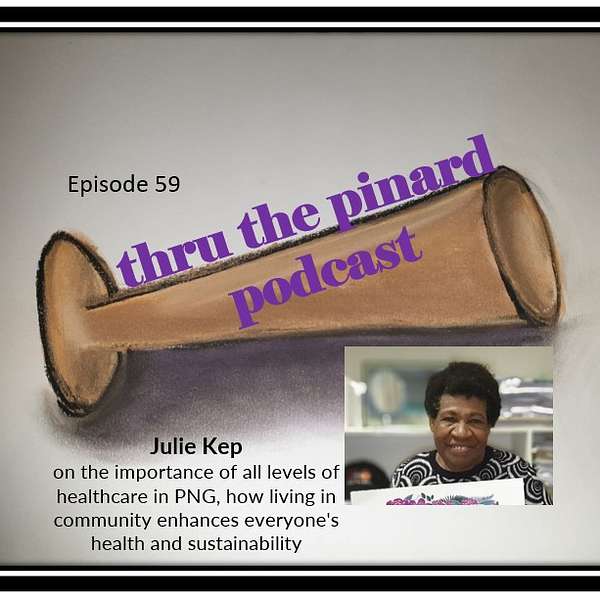
thru the pinard Podcast
a conversational podcast with @Academic_Liz with midwives & other birth professionals about their studies/ research & how it's changing our practice globally - email thruthepinard@gmail.com
thru the pinard Podcast
Ep 59 Julie Kep on the importance of all levels of healthcare in PNG, how living in community enhances everyone's health, and sustainability
message me: what did you take away from this episode?
Ep 59 (ibit.ly/Re5V) Julie Kep on the importance of all levels of healthcare in PNG, how living in community enhances everyone's health and sustainability
@PhDMidwives #MidTwitter @maternalandchildhealth #research #midwifery @AustraliaAwards @MidwivesACM @eleanor_holroyd @world_midwives
paper link- t.ly/wL4Qk
Have you ever contemplated the intricate journey of a midwife, working tirelessly across all levels of health facilities in a developing country? I have the honor of introducing Dr. Julie Kep, a deeply passionate midwife from the PNG Papua New Guinea Midwifery Society and the National Department of Health. We'll navigate her fascinating trajectory into midwifery and her experiences across the diverse health infrastructure in Papua New Guinea. Julie enlightens us on the country's new health plan, its impact, and her unyielding efforts to improve cesarean section capabilities across multiple facilities.
Imagine transitioning from having your boots on the ground, serving as a midwife, into the world of academia to pursue a PhD. Julie's journey took an unexpected turn when she received a scholarship, catapulting her into the world of academia. We'll discuss her successful venture of creating a maternal and child health program and the community's reaction to it. We'll also delve into the importance of education in disease control and the integral role of village health workers, the unsung heroes of maternal and child care.
Finally, we will explore the challenges Julie faced while moving to Melbourne to pursue her PhD, but the rewards outweighed the hurdles. She took on the unfamiliarity of a new environment and found her PNG community, proving resilience knows no boundaries. In our discussion, we'll tackle the significance of Australian Fellowship Awards for postgraduate students and the Association's support in empowering midwives. Tune in to hear about Julie's tireless efforts to strengthen the fabric of midwifery, her pursuit of knowledge, and her inspiring journey across Papua New Guinea to Melbourne and beyond.
Do you know someone who should tell their story?
email me - thruthepodcast@gmail.com
The aim is for this to be a fortnightly podcast with extra episodes thrown in
This podcast can be found on various socials as @thruthepinardd and our website -https://thruthepinardpodcast.buzzsprout.com/ or ibit.ly/Re5V